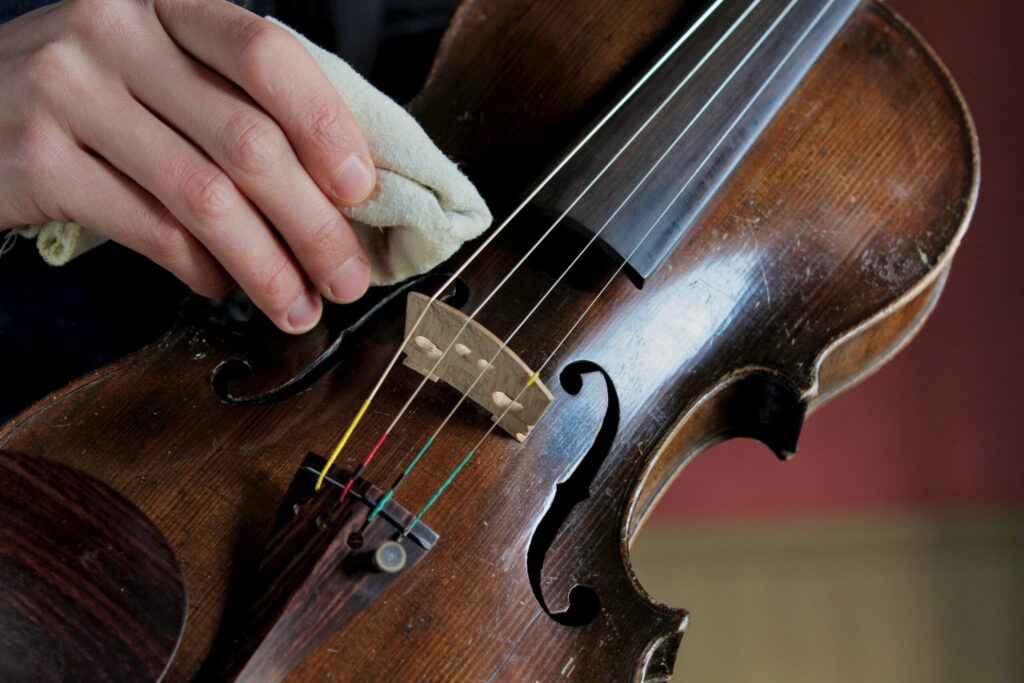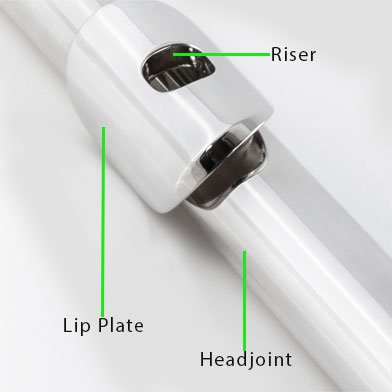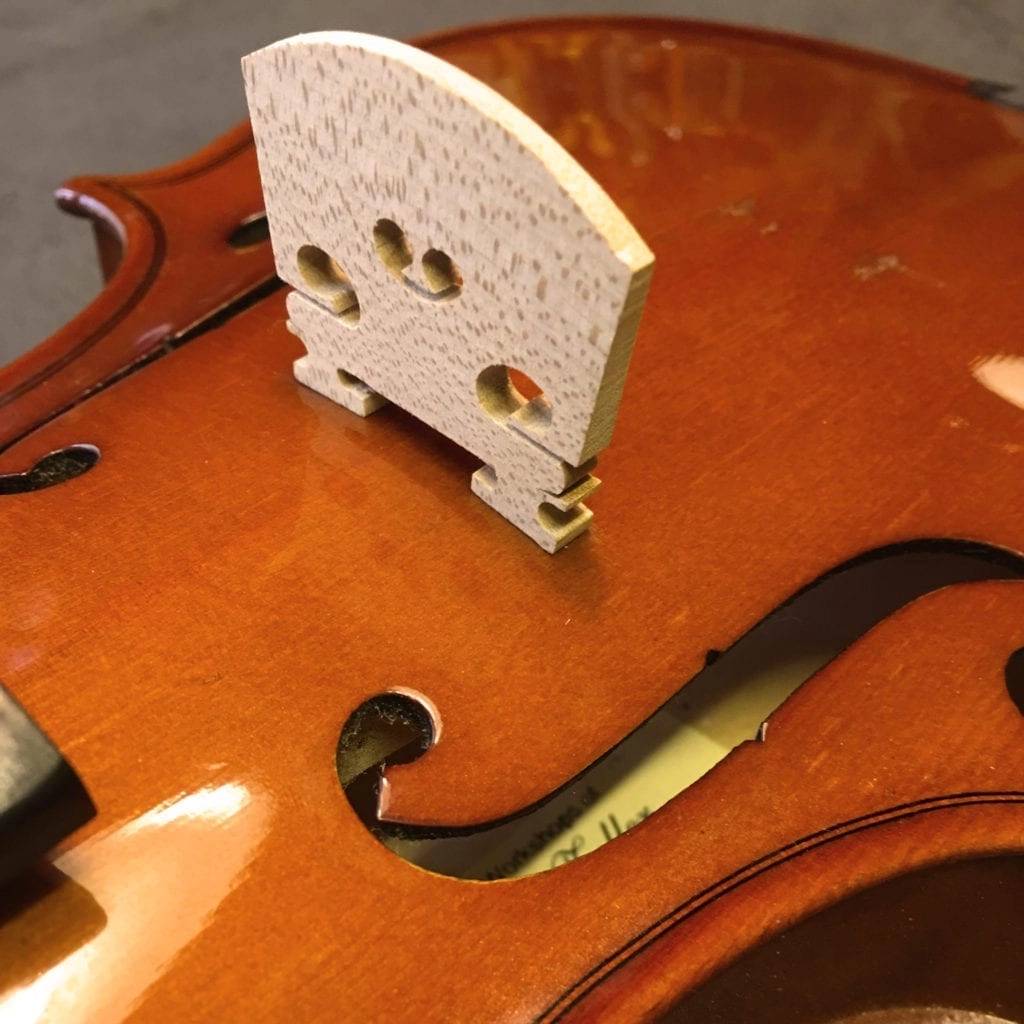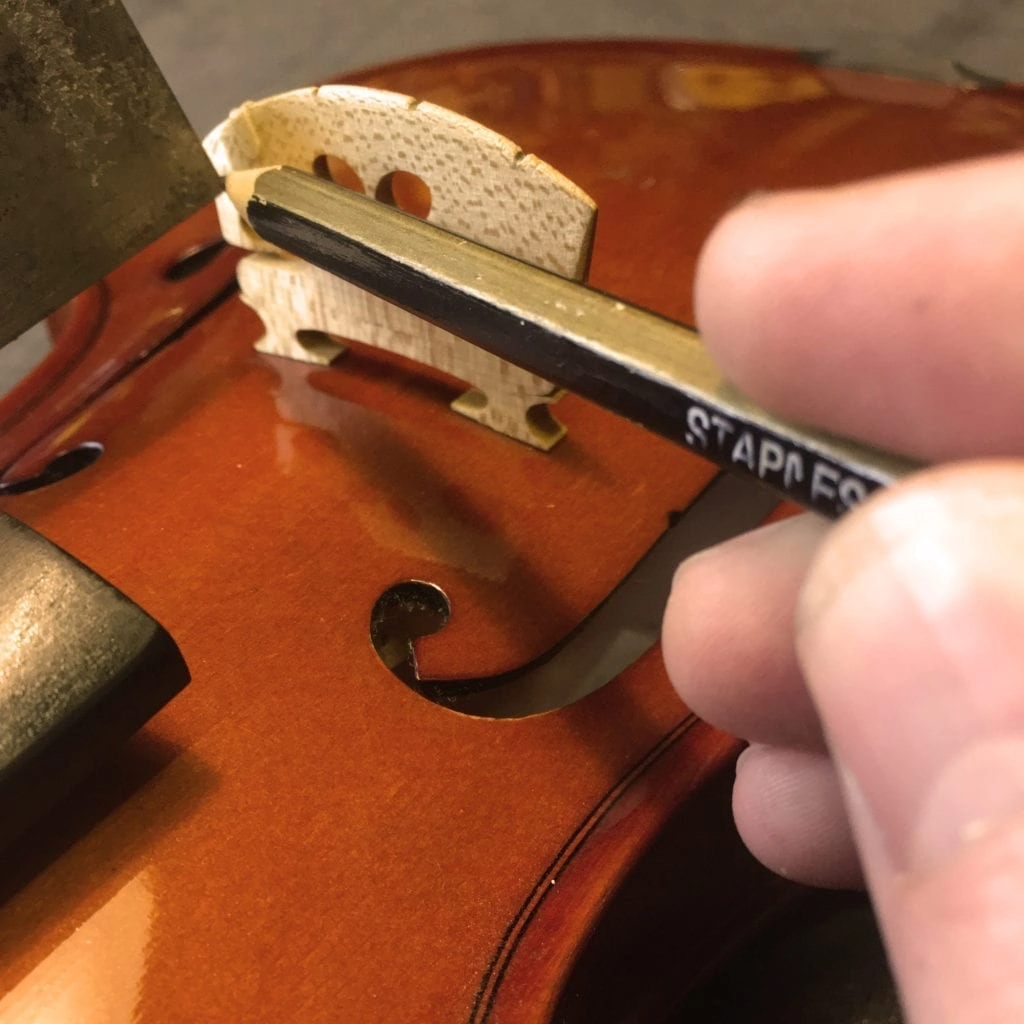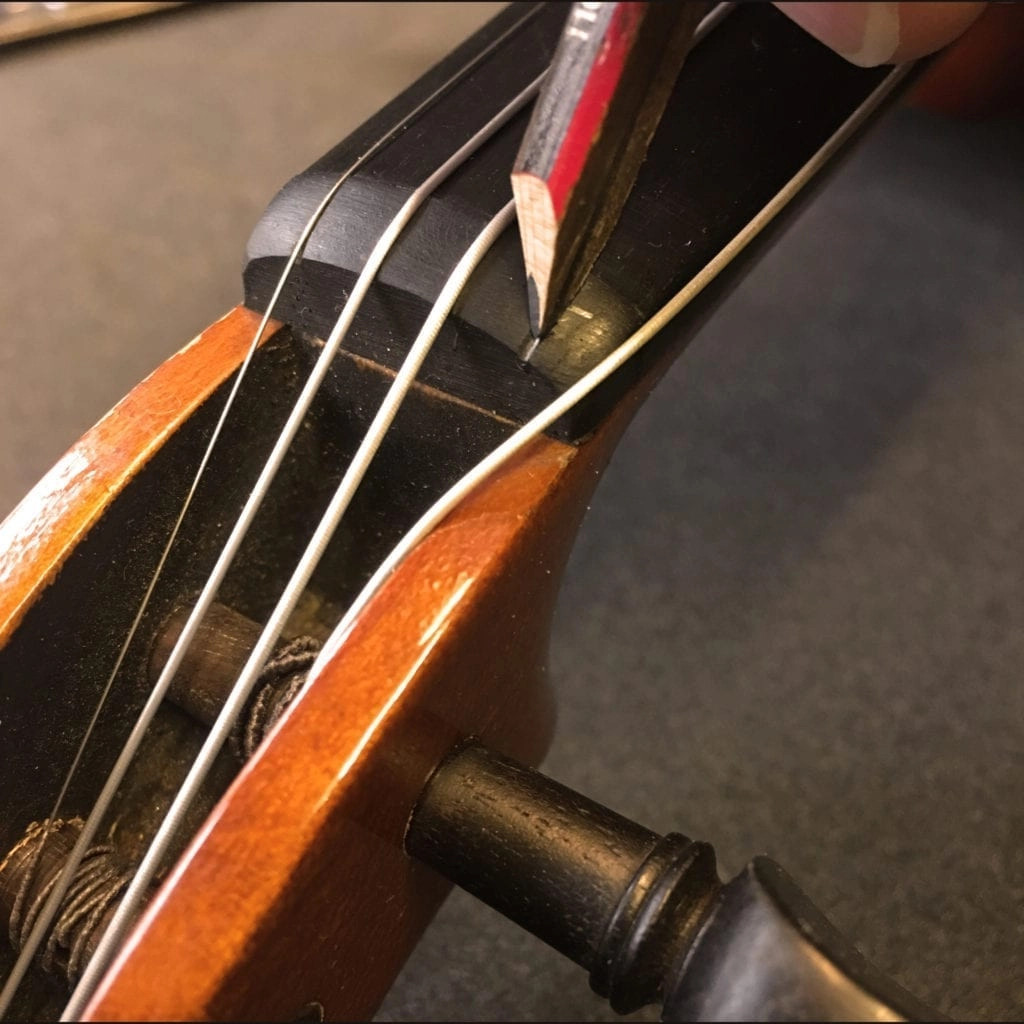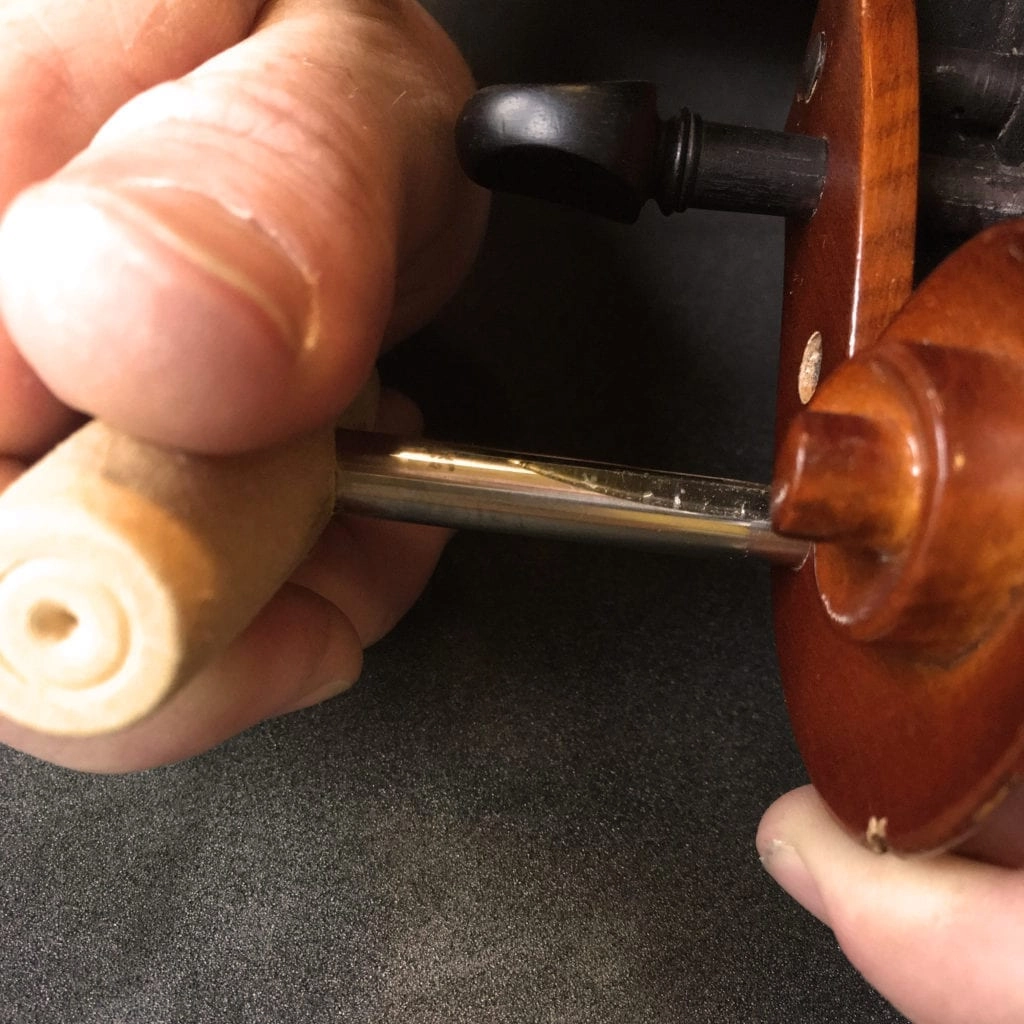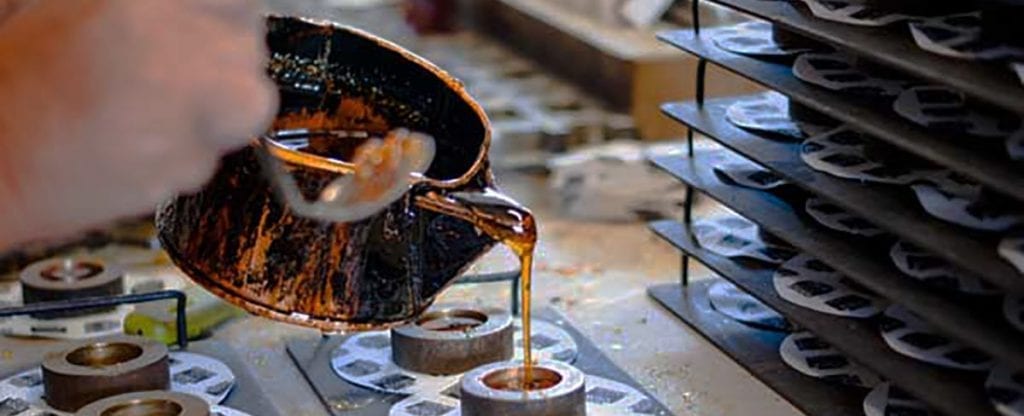
What is violin/viola Rosin?
Rosin is very important on the hair of the bow as it enables the hairs to go across the strings and create a sound. Without rosin the sound can be almost non-existent. Equally, you don’t need too much rosin as this will just make the hair sticky. Rosin is an amber coloured tree resin (usually from pine, spruce or larch trees).
How to rosin your violin/viola bow
To rosin the bow, you need to rub the rosin up and down the full length of the hair a few times. A new bow will need more rosin than a used bow.
The rosin will leave a thin layer of white powder on the bow hair – if there is too much just flick the hairs a few times and you will see the plumes of powder coming off. You will generally need to rosin your bow every time you play your string instrument.
As time goes on you will learn to hear whether your bow needs more rosin. The rosin should only be applied to a tightened bow - it is a lot more efficient than when the bow hair is slack.
If you have new rosin, it will need scoring to make the surface rough. Otherwise, it will be very difficult to transfer the rosin to the bow.
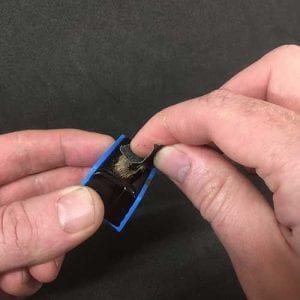
Lightly scratch the surface of your new violin/viola rosin.
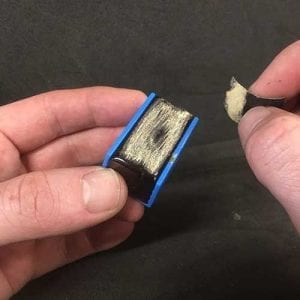
Blow, or knock off any excess and lose rosin.
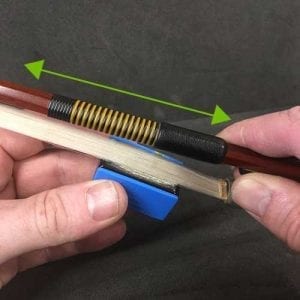
Slide the bow up and down the rosin.
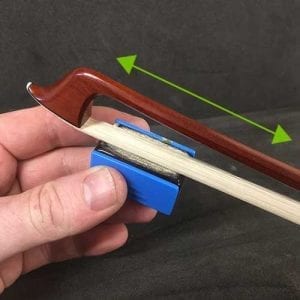
If you have a new bow it will need more rosin.
About the bow
Bows are fragile and should be treated with care. They are not swords, walking sticks or weapons of any kind! As tempting as this is for young children, they must be educated that the bow should be treated as part of the musical instrument and not just an accessory.
The bow comes as one piece and shouldn’t come apart at all. The hair on the bow can be loosened and tightened using the screw on the end. When you are not using the bow, the hair should be loosened to rest the hair. You will need to tighten it up when playing, but not too tight as this will just stretch the hair.

Which rosin is best?
There are specific rosins for violins, violas and cellos but in essence they are all made of the same compound. Light rosin is favored for violins and violas and dark for cello and double bass.Equally, there are different brands, but a basic student rosin will be enough for beginners. Professional players tend to have their favourite, and this will often be a historical reason rather than anything scientific.
After playing your string instrument you may see some residue rosin on the strings. This can be wiped off using a dry, clean duster or similar cloth. This will help preserve the strings on your instrument.



